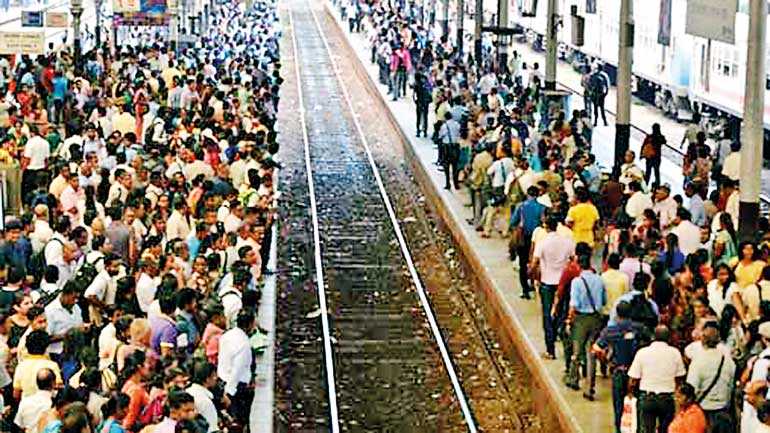Friday Feb 13, 2026
Friday Feb 13, 2026
Monday, 13 August 2018 00:44 - - {{hitsCtrl.values.hits}}

Following a discussion held under the patronage of President Maithripala Sirisena, the Railway Trade Unions yesterday decided to call off their ongoing strike action.
The Locomotive Engine Drivers’ Union Secretary said they arrived at the decision after President Sirisena promised to provide prompt solutions for their issues.
As the strike has been called off, Sri Lanka Railways also assured that all train services will be normalised from today, while noting that all night mail trains operated as usual from last night.
Several railway trade unions, including drivers and guards, launched a strike without prior notice at 3 p.m. on 8 August, protesting the failure to provide solutions to salary disparities in the railway service.
The Finance Minister on Friday called on the unions to end the strike and to come for discussions with the Government without further inconveniencing the public.
It was also pointed out that the Finance Ministry is to present a Cabinet paper this week to appoint a commission to look into reforming the salary structures of the entire public service. “The paper is ready, and once the commission is appointed, they will give recommendations within two months,” he said.
Emphasising that the Government is not in a position to give a salary increase as demanded by the railway trade unions, he said that if the demand is granted, then similar demands will be made by teachers, doctors and a host of other professionals in the public service.
“The salary structure of the entire public service will go into a serious crisis if this one demand is met. Therefore, we are appointing a separate committee to take a comprehensive look at the issue,” he told media on Friday.
Previously, a committee headed by Science, Technology, Research, Skills Development and Vocational Training and Kandyan Heritage Minister Dr. Sarath Amunugama had prepared a report with a recommendation for a salary hike, but it was opposed by the Finance Minister who noted that it would create greater anomalies in the entire public sector salary structure.